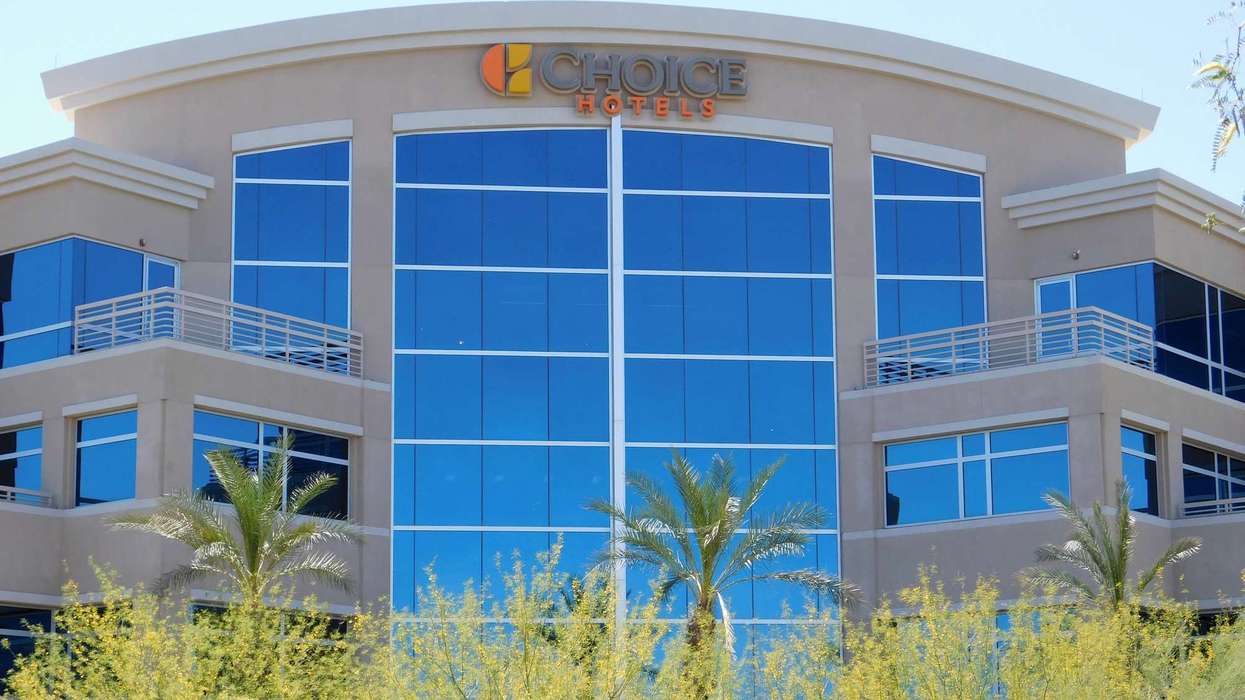THE ECONOMIC DOWNTURN caused by the COVID-19 pandemic has left an opening in third-party hotel management that Ashwin Patel and his partners plan to fill. They have launched a new company, Iridescent Hotels, that will focus initially on managing distressed and in receivership properties that are repositioning or closing.
Iridescent Hotels will focus on private, institutional and financial clients separate from Ashwin’s existing company, Southwest Hospitality Management in Mesa, Arizona. Ashwin, who also is a former AAHOA chairman said the current situation played a part in the decision to form the new company.
“Over the last few years, we have had a lot of management companies, midsize and large size, consolidating into bigger companies, merging,” he said. “And then, during this COVID-19 period, a lot of them lost their staff because the revenue streams were not there and many people were furloughed. We looked at it and said, ‘Hey, what is our industry missing? And what can we do as a management company that is going to be different and still very timely?’”
Many existing companies do not offer complete service covering everything from pre-opening management, technology services, renovation services, support on PIPs and acquisitions or disposition solutions.
“They don't bring all the solutions at the same time,” he said.
Iridescent Hotels will be a one-stop-shop, Ashwin said.
The team
Ash’s partners in Iridescent Hotels are Tim Walker, former president of Island Hospitality and CEO of Innkeepers USA Trust, over operations; Gary Mills, former vice president of real estate for NewcrestImage, over real estate and development; Ajit Patel, CFO at Southwest Hospitality, over finances; Christopher Puntureri, over sales and marketing consultant; and Raj Chauhan over information technology.
“The talent pool that we put together has operated many, many hotels,” Ashwin said. “We have close to 150 years in time management experience.”
NewcrestImage experimented with third-party management two years ago. Mills said the new company has a different approach.
“Iridescent has all the bases covered and is focused on adding value to hotel owners who are seeking a strong operating partner,” he said.
Walker said Iridescent Hotels’ multi-prong approach will give it an advantage.
“Providing a one-stop-shop management arm with select disciplines around people, processes and financial reporting puts Iridescent Hotels in a position to add value to debt holders, investors, special servicers and private owners that most Industry leaders have lost sight of,” he said.
The market’s needs
The stresses being placed on the market by the pandemic also have given rise to a new opportunity as the number of hotels entering delinquency rises. Ashwin said almost 50 percent of the industry is in distress.
“If you look at the CMBS market news, if you look at the special servicers that have been engaged, chances are that there may be another 3,000 to 5000 hotels that may go into special servicing and be given to receivers to transition over again,” he said.
There are not enough management companies to meet that demand, Ashwin said.
“When some of these distressed assets come to the market, the processes are directed through the court systems. A receiver comes in play and there are some instructions by the court systems,” Patel said. “Most of these hotels, in order to survive, have already cut their staff and cut their sales and marketing staff and are probably not even responding to RFPs and all the other things that are happening.”
Iridescent Hotels’ team is familiar with ownership of hotels, putting investor groups together and other aspects of third-party managing these distressed properties.
The method
“We go in obviously to evaluate these hotels. We have a team of individuals that are ready to take over an asset, evaluate the assets, evaluate the current staff on board, evaluate the prior businesses, prior accounts, and evaluate the performance and budgets and everything,” Patel said.
They look at the assets in terms of risk management, ensure brand standards are being followed and work with the brands.
“We want to make sure that we're not overstaffed and the labor models are not out of whack,” he said. “We bring back the business at the hotel, work against our competitive set, and bring value back to the hotel so that when it does transition, when the lender and the receivers are ready to transition the hotel, that they're getting maximum value out of it.”
One specific challenge unique to the current environment is the existence of more stringent cleaning protocols from the Centers for Disease Control and Prevention, the Occupational Safety and Health Administration and local health departments, as well as from brands, put in place to fight COVID-19. Ashwin said Iridescent Hotels will oversee the implementation of those protocols at hotels it is contracted to manage.
“We make sure that the staff is properly trained and they have the proper equipment in order to manage liability, because right now in the COVID era, Congress has still not passed legislation to indemnify businesses across the country from COVID lawsuits,” Ashwin said. “There already over 2000 plus lawsuits across the country that are COVID related and they are exponentially going up as the days go by.”
Ashwin said there are times when some lenders do choose to shutter a hotel, but then they don't have a third-party asset manager who can oversee the property. Even an empty hotel requires some asset preservation to prevent the risk of deleterious effects, such as mold build up.
“Let's say a hotel is shuttered because it financially is just not worth it to keep it open until it's disposed of, but that could take three months, that could take six months, depending on the courts,” he said. “And the courts are going to be overwhelmed with the number of delinquencies, not just on the hospitality side.”
Ashwin said the staff at Iridescent Hotels also has changed their work methods to suit the COVID-19 world.
“We've also now adapted to being remote. All of our staff will not be working out of an office in Keller, Texas, where we're based, but a majority of them will be actually working in the field and working remotely,” he said. “We think that this remote working and working from home has both pros and cons, but it seems like there are more pros than cons.”
A fresh start
While Southwest Hospitality also has a third-party management wing, Ashwin said there were several reasons to start Iridescent Hotels as a separate entity.
“We figured that it would be better to create a completely new arm with completely new talent that had incentives to be a part of a new company,” he said. “We wanted to start fresh with a fresh name, fresh logo and a new set of advisors.”
So far several potential clients have expressed interest in the new service.
“Key Bank has already informed us that were one of their preferred third-party vendors when some of their assets do come to fruition,” he said. “We have already lined up clients on the receiver and the lender side that when these assets do come to fruition.”
Their model may change in the future as the U.S. overcomes the pandemic and the coinciding economic downturn. Ashwin said they will be ready to transition into more standard third-party contracts with other types of companies.
“The COVID contracts are going to be temporary, they'll come and they'll go, but our talent pool and our company pillars will basically be solid for future growth as a true third party manage,” Patel said.





